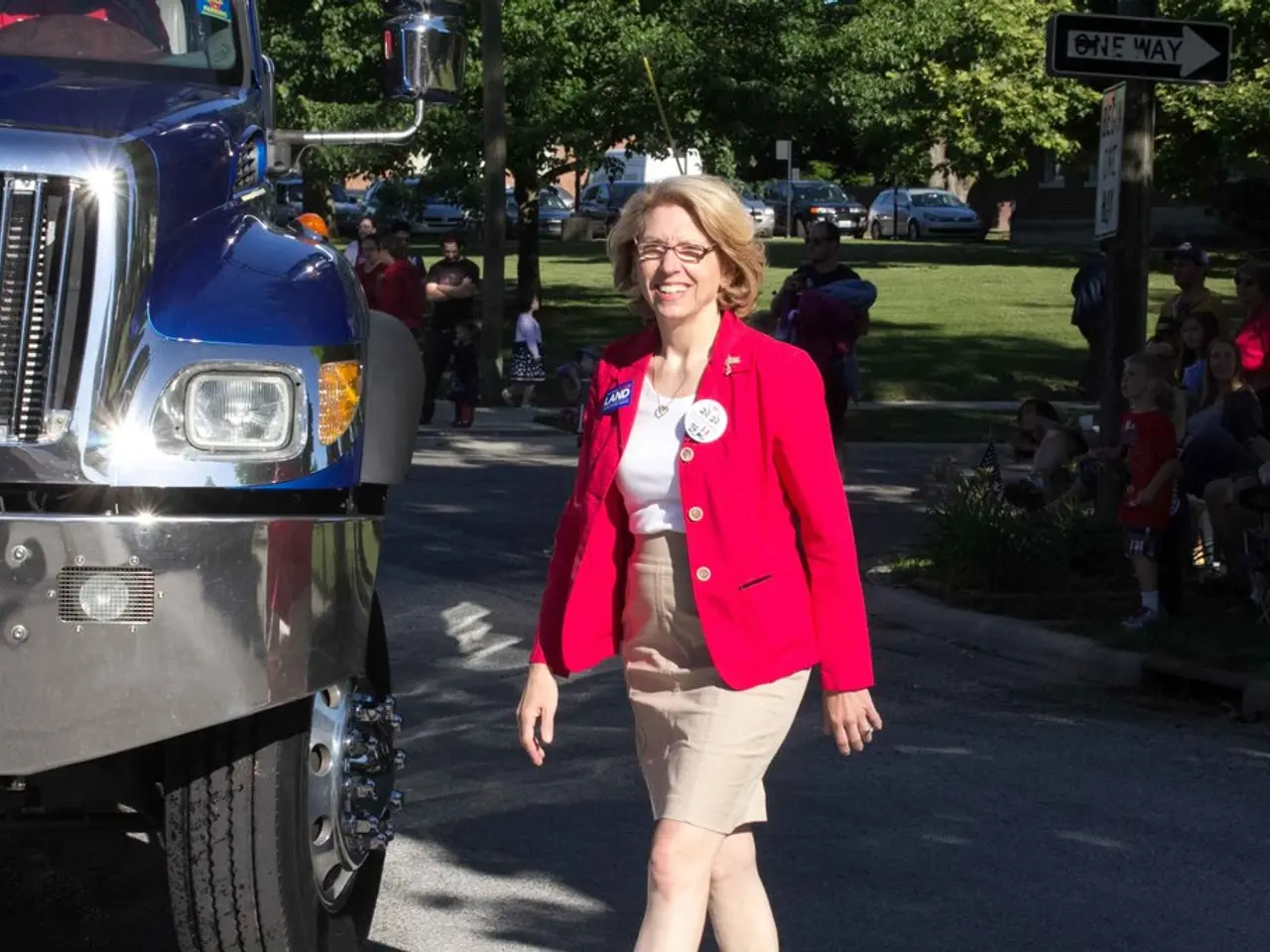Men tend to have greater freedom in personal mobility compared to women
In early 2025, the Ministry of Transport in Baden-Württemberg commissioned a study titled 'Equality in Mobility' to examine the differences in mobility behaviour between men and women. The study, a collaborative effort between FaFo Family Research and the Statistical Office of the State of Baden-Württemberg, sheds light on significant disparities in mobility needs and patterns.
The study reveals that men are the primary cause of traffic accidents due to risky behaviour, exceeding the speed limit three times more often and driving under the influence of alcohol five times more frequently. On the other hand, women often take on more care work and have to navigate complex route chains to combine their different purposes, with 10% of all women's trips being accompanied by others compared to 6% of men's trips.
Minister Winfried Hermann commented that politics has not reacted adequately to these differences, and State Secretary Elke Zimmer emphasised the need for a gender perspective to be actively included in urban and mobility planning. The study suggests that improving public transport, enhancing barrier-free accessibility, ensuring reliability and short travel distances, and focusing on better lighting and security in public spaces and transit, especially at night, can help create safer, more flexible, and accessible public transport environments for women.
Moreover, the study found that women in Baden-Württemberg have less freedom in mobility compared to men due to these complex route chains, more accompaniment of others, and lack of support for alternative routes. Women also feel 68% unsafe or very unsafe at night alone in public transportation, a feeling largely attributed to caution and vigilance learned from a young age.
Minister Hermann added that it is unacceptable that a 16-year-old girl is only allowed to leave the house in the evening if a parent can pick her up afterwards due to concerns about safety in public spaces. Improved lighting and visibility, such as trimming hedges, can help counteract these feelings of unsafe in public transportation.
Barrier-free and family-friendly parking spaces also contribute to fairer participation of women in public spaces. The Vision Zero campaign, aiming to eliminate fatalities and seriously injured individuals in road traffic, with a focus on young men in 2026, further underscores the importance of addressing these issues.
Access the study 'Equality in Mobility' (PDF) here. For more information, contact the Ministry of Transport's Press Office or a Citizen Representative via the provided links.
Read also:
- Americans Lose Insurance Under New Tax Legislation, Affecting 10 Million Citizens
- Today's Health Updates: Brief Insights into Recent Health-Related Developments
- Prevent the exploitation of public healthcare system for financial gain
- Video: Satirical Drug Ad Highlights Robert F. Kennedy's Crusade Against Deceptive Pharmaceutical Promotion




